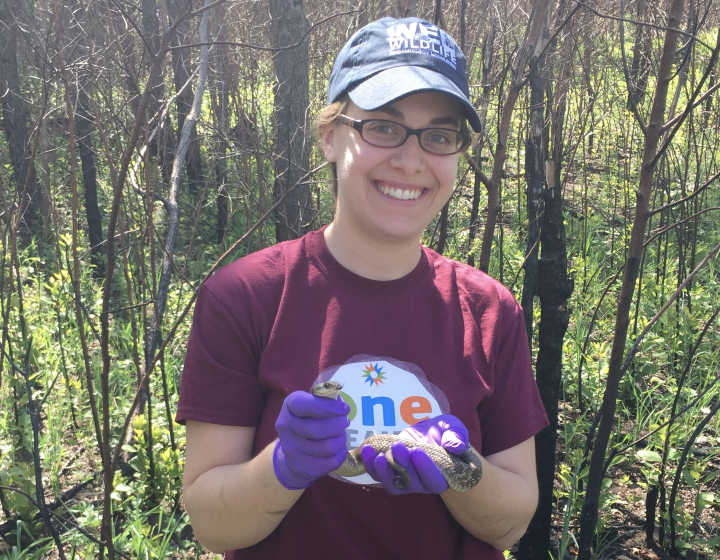Equine study finds metabolic & sugar molecular markers of osteoarthritis
Heidi Reesink, Ph.D. ’16, Harry M. Zweig Assistant Professor in Equine Health, published a study in the Equine Veterinary Journal on Feb 21. The study found there are tell-tale molecular markers in joint fluid from horses with osteoarthritis, which could help scientists and veterinarians differentiate between healthy horses and those with joint disease. The paper is the first to assess global changes in glycosylation (or the modification of proteins with sugars) in osteoarthritis in any species.
Reesink and her collaborators, including Dr. Lara Mahal, the Canada Excellence Research Chair in Glycomics, and her Ph.D. student, Rui Qin, from the University of Alberta and Drs. Sheng Zhang and Maria Elena Diaz-Rubio from the Proteomics and Metabolomics Facility at Cornell, analyzed equine patients with naturally occurring joint injuries, examining how joint fluid metabolites and protein sugar modifications were altered. “Our findings suggest that sugars are modified in joint disease and could be contributing to progression and development of osteoarthritis,” says Reesink. “These findings motivate the search for new potential therapeutics that can target sugars and other metabolic pathways for treating joint disease in horses.”
Reesink and her colleagues plan to compare these changes between multiple domestic veterinary species and to determine if some of these molecular changes are common across veterinary and human patients.
-Written by Lauren Cahoon Roberts




